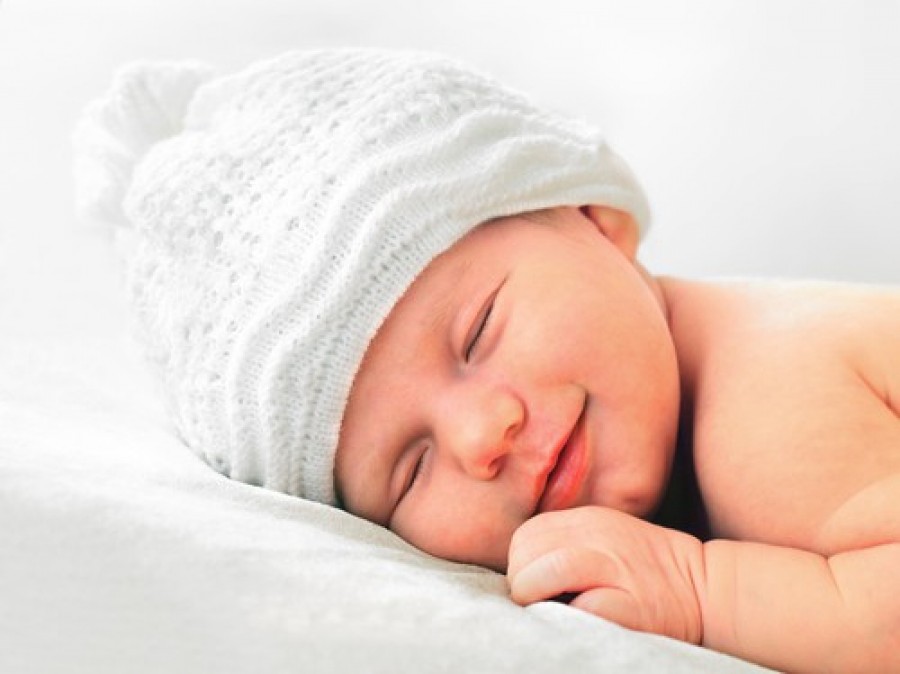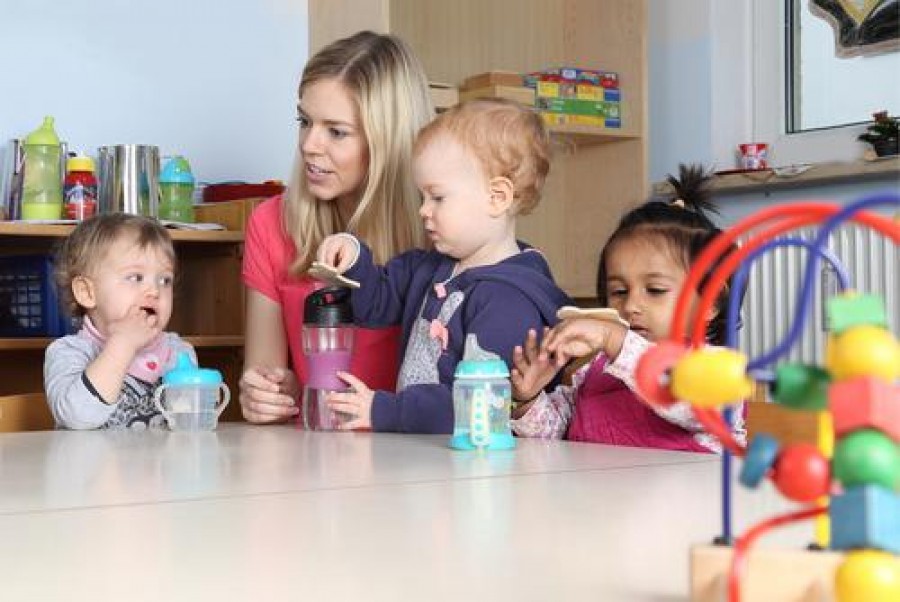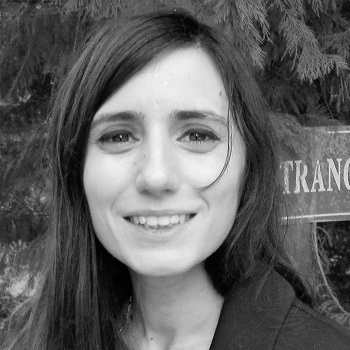When Do Babies Smile?

It is a very common question from newborn parents – When do babies smile? It is one of the very first things we look for from our newborn, and much anticipated.
This is an eagerly awaited moment, and often can be confused with something else.
Is that a smile? Nope, just wind.
Is that a smile? Nope, just concentrating on pooping.
Is that a smile? Nope, hang, just getting ready for a big spit up.
Why do we look forward to our baby’s first smile so much?
The first six weeks with your newborn can be some of the hardest of a mother’s life. Your baby is so new and everything he needs is new to you. It is a steep learning curve full of discovery, wonder, poop and more than a few tears (from everyone!).
When your baby is brand new he can seem almost like a tiny animal rather than a person; his needs can seem like just food, sleep, new nappies and that’s about it. You may not feel like you are connecting with him as a person, and sometimes these few weeks can seem a bit lonely.
But then he smiles, and the world lights up. You don’t have a small needy animal living in your house, you have a beautiful baby. He sees you and loves you and suddenly everything is possible.
Magical – right?
What does a smile mean to a parent?
Your baby’s first smile is something different to gas or pooping, because of the feeling and intent behind it. It is a real smile because your baby is expressing happiness.
This is one of the first times that he is engaging with you on a human level, and one of the most direct ways he is letting you know that you are doing a good job.
It’s only natural that you would need validation as a new parent, and this is one of the simplest ways you can get it. All the other people around you can try to reassure you that you are parenting well, but there might still be doubt.
But when your baby smiles at you, you know for sure.
When do babies smile?
My third child, I swear, was smiling in our first photo of her, cradled in my arms straight after she was delivered.
But it probably was not the case.
Babies have a reflex smile which apparently they can do even when in the womb. These smiles aren’t intentional and don’t happen in response to anything, and are the early ones that confuse us so easily.
This reflex smile disappears when your baby is around two months old. The first real smiles appear anywhere between 6 weeks and 12 weeks of age usually.
The real smiling starts to take place when his brain and nervous system have developed enough for him to smile on purpose.
What does your baby’s first smile mean for him?
Your baby’s first smile is a sign of social, visual and emotional development.
His vision has improved and now he can make eye contact. He is now focussing on and recognising faces. He is also working out the effect that his smile has, and that his opinions matter.
He will learn cause and effect – he will start to pick up that when he smiles, you smile, and good feelings follow.
In the beginning, his mother will get most of the smiles (Yay!), but he will interact with others as well and have smiles for them too. Around this time, he also may start to make noises as a way of communicating.
Giggles will follow after this and around the age of 5 months, you will probably experience full-on laughter. And that is the single greatest sound in the whole world (I may be slightly biased…)
How to spot the difference between a reflex smile and the real thing
- Reflex smiles are shorter in duration and may occur randomly or at strange times, like when your baby is asleep
- Real smiles are longer in duration and usually happen in response to something
- Real smiles include other facial features as well – you will see emotion and connection in his eyes as well, and other parts of the face light up too.
How can you help things along?
Many parents feel silly about this, but the best way to get reactions from your baby is to interact with him directly. Talk to him often, sing, make silly noises and expressions, tickle his hands or feet, etc.
Constant eye contact and lots of smiles will work wonders. Silly games like blowing raspberries and playing peekaboo are also big winners.
Try not to overstimulate him, however; give him breaks in between the silliness to be calm and chilled as well.
What if my baby doesn’t smile?
If your baby isn’t smiling this could be an indication that something in his development is delayed, including his eyesight, his cognition and his ability to engage with others.
Lack of smiling can be an early indicator for autism spectrum disorder, however, it will usually not be the only symptom. If your child hasn’t smiled yet but vocalises, responds to verbal and visual cues from her parents and makes eye contact then you probably don’t need to be concerned about autism. He might just not smile all that much – some people are like that.
You can read more about the early signs of autism here
Every baby does things in their own time, but the first smile is a sign of good development. If you have passed the three-month mark and your baby isn’t smiling or making eye contact, then mention this to your Maternal and Child Health Nurse, or your family doctor.



